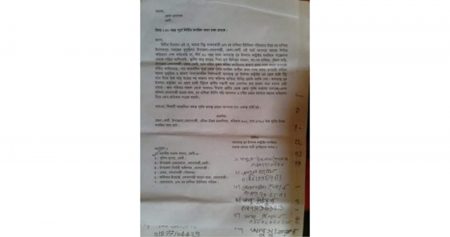Conference on Human Rights in Digital Age held at BRACU

Online Desk:>>>
On 5 February, 2018 a daylong conference was held on “Framing Perspectives: Re-thinking Human Rights in the Digital Age” at GDLN Centre, BRAC University (BRACU). The event mainly focused on three thematic areas – (i) freedom of expression online, (ii) data privacy and security, and (iii) the Netizens’ relationship with the State. Law Life Culture (LLC) organised the conference in collaboration with the School of Law (SoL), BRACU and Swedish Institute.
The conference concentrated on the need to explore and acknowledge human rights in the digital world, and assessed how the modernization transpired a change in the paradigm of development of rights, their protection and fulfillment. The relationship among human dignity, right to life, freedom from fear and freedom of expression was examined, recognizing the fact that these rights also need to be ensured online. Wide range of human rights defenders and representatives from various organisations, lawyers, students and other professionals attended the conference.
The welcome address was given by the Dean of the SoL, BRACU, Professor K. Shamsuddin Mahmood, followed by an inaugural session. Professor Dr. Mizanur Rahman, Former Chairperson, National Human Rights Commission of Bangladesh, presided the session as the Chief Guest. Dr. Rahman talked on the State’s responsibility to protect human rights both offline and online. The presence of Ms. Charlotta Schlyter, Honourable Ambassador of Sweden to Bangladesh and Professor Ansar Ahmed, Pro-Vice Chancellor of BRACU adorned the session. Ms. Charlotta recalled her government’s passion in ensuring and protecting human rights for everyone, everywhere and every day. Professor Ahmed said that BRACU will spontaneously welcome and support any activity to promote and protect human rights. Later part of the conference was divided into three different sessions focusing on diverse perspectives. After each of such session, solutions and suggestions presented by the participants were entertained in the Q&A period.
The first session was moderated by Dr. Saira Rahman Khan, Professor, SoL, BRACU. Mr. Sarkar Barbaq Quarmal, Assistant Professor, ULAB, spoke on the role of social media in shaping communication behavior of urban youths in Bangladesh, while Mr. Ahmed Adibur Razzaque Khan, Centre Associate at Asia Centre, critically reviewed the Shahbag Movement in Bangladesh and discussed on public space and virtual space. Portraying real incidents Mr. Quarmal argued that, technology is invading our personal life and taking preference over family relationships. How technology can be an influential tool for youth movement and rights was discussed in the session.
Afterwards in the second session, Ms. Tasaffy Hossain, founder of Bohnishikha, shed light on the relationship between physical space and virtual space as she approached ‘Gender Surveillance’ from a feminist perspective. She termed such surveillance as ‘policing’ on the morality of women. Ms. Hossain explained how advent of technology is apparently seen as a solution in the physical space whilst the negative consequences in the virtual space is, more often than not, taken no notice of. Thereafter, Mr. Saimum Reza Talukder, Senior Lecturer, SoL, BRACU engaged the session with some personal experiences as he went on to explicate how our online presence is under surveillance and being profiled by state and non-state actors for fabricated and tailored advertising and propaganda.
He presented some solutions and emphasised on inclusion of special laws, particularly, enacting personal data protection law in Bangladesh. Professor of International Relations, DU, C. R. Abrar acceded to the solutions proposed by Mr. Talukder but he further argued for insertion of new provisions in the Constitution. To bolster the proposal, he aggrandised the power of ‘We the people’. The Constitution itself not being stagnant and unchangeable, should recognise such contemporary need for people, he opined. Barrister Anusheh Shiham Ali, Lecturer, SoL, BRACU, acted as the moderator in this session.
The concluding session of the conference was moderated by Mr. Mostafa Kamal, Assistant Professor, SoL, and BRACU. The conference findings were dissected as Mr. Rezaur Rahman Lenin, Project Director and Convener, Law Life Culture, summarily pointed out the issues and solutions discussed previously by other speakers. Based on his experience of working in the development sector, he prescribed the need for welfare and rights organisations to discover the contemporary issues involving infringement of rights in the digital world alongside their ongoing activism.
Later, Jyotirmoy Barua, Advocate, Supreme Court of Bangladesh, identified the loopholes in the Constitution regarding protection of rights and awed at the unexpected misuse. Mr. Barua complained about the deficient knowledge of law enforcement agencies regarding cybercrimes, at the same time placed the flaws in the cyber laws. He uttered the need for propinquity of punishment between cyber and real crimes, in terms of similar offences.
The event was covered by Raihan Rahman Rafid , student of Law, University of Dhaka.




